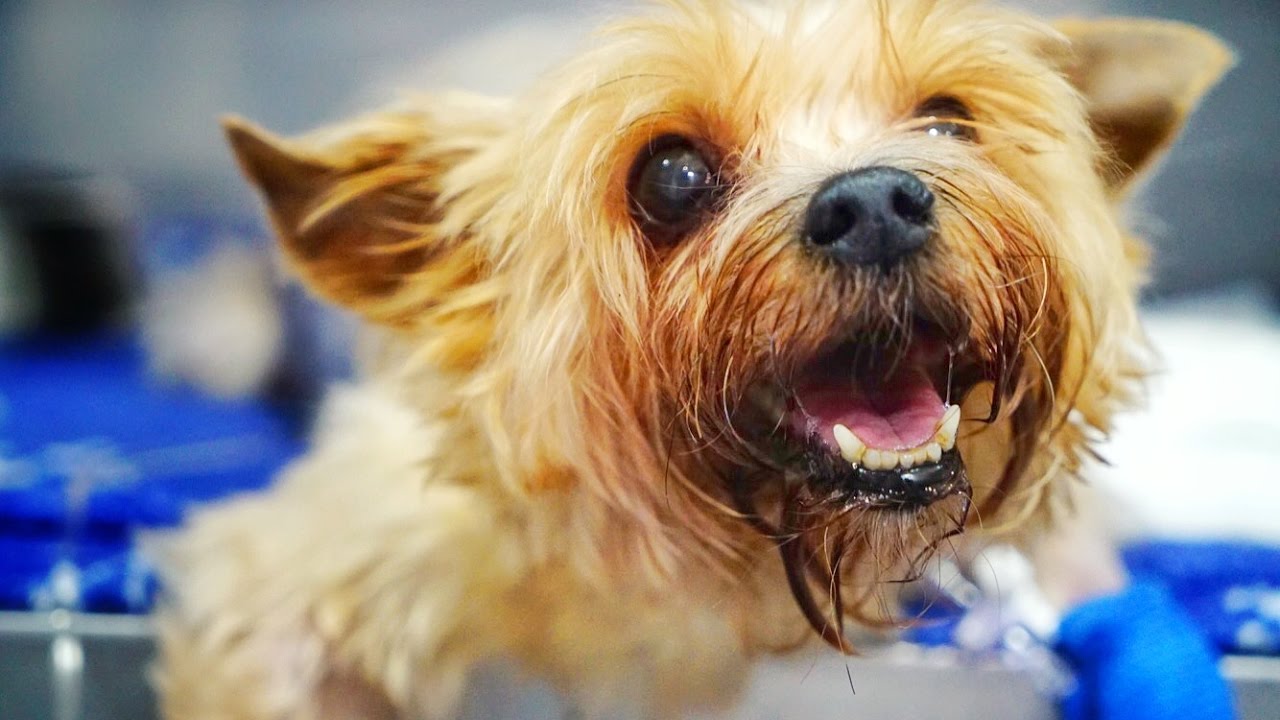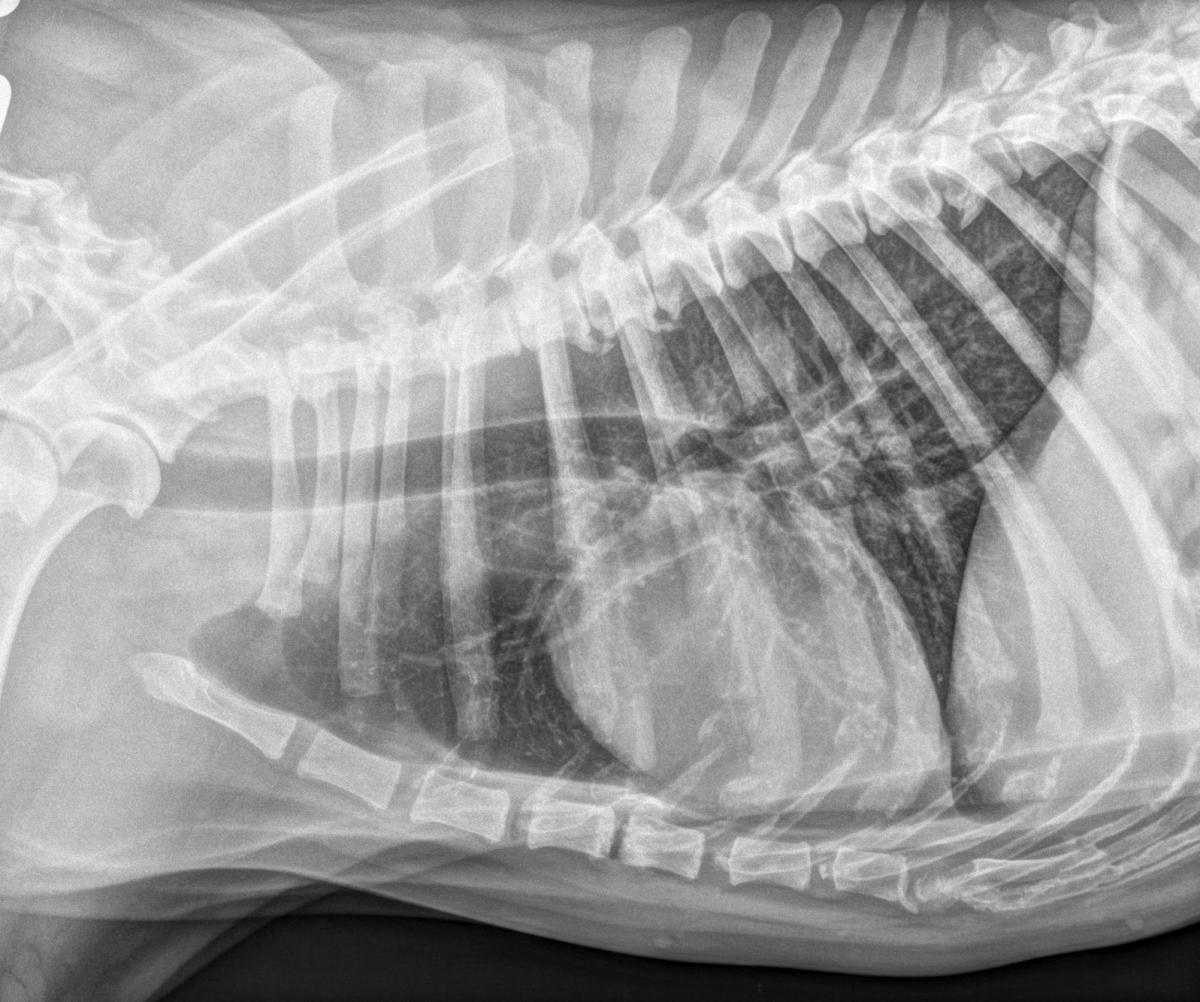Tracheal collapse in dogs
Tracheal collapse in dogs is a chronic respiratory disease that mainly affects small breed dogs.
Although it is a serious health condition, it can now be successfully treated in most cases. Tracheal collapse can often be treated, but it should not be neglected, as it is a condition that, if left untreated, will inevitably lead to tracheal obstruction and may result in the death of the animal.
What is canine tracheal collapse?
Dog tracheal collapse, also known as tracheal collapse, is a relatively common progressive degenerative disease commonly seen in small breed dogs. The trachea is a duct of fibrous and cartilaginous tissue that connects the dog's larynx to its bronchi to ensure the passage of air to the lungs during inhalation and the expulsion of air during exhalation.
This organ is the main respiratory tract located in the dog's throat, in front of the esophagus, an anatomical detail that is important because wearing a collar can have a direct impact on tracheal collapse. The dog's trachea is composed of horseshoe-shaped cartilaginous rings, the open part of which is positioned towards the esophagus to allow it to dilate to let food in, connected by fibrous tissue.
These relatively rigid rings support the tracheal tissues to keep the trachea open and ensure airflow. Tracheal collapse occurs when the cartilaginous rings supporting the trachea become demineralized, i.e. lose substance, and no longer fulfill their role properly.
When these rings deteriorate, the trachea becomes fatally flattened, which reduces its diameter and, consequently, reduces the volume of air entering the dog's lungs with each inspiration. The reduction in tracheal diameter causes respiratory distress and even death by asphyxia.
This is called a chronic disease because the tracheal rings deteriorate slowly and the symptoms worsen over time, sometimes over months or years. Tracheal collapse is regularly associated with other respiratory abnormalities, such as tracheal membrane laxity or pharyngeal collapse.
Causes of tracheal collapse in dogs
Tracheal collapse in dogs is a multifactorial pathology, which occurs when several conditions are met. A congenital defect in the dog's cartilage is often the cause of the problem, with a hypocellular composition decreased in calcium that weakens its strength and rigidity.
This condition is usually not sufficient to cause tracheal collapse, and concomitant factors are almost always involved in its occurrence. Among them, obesity, heart failure, respiratory infections, inhalation of toxins and the wearing of a collar that traumatizes the trachea permanently or when the dog pulls on its leash are the main factors.
It seems that genetic factors are also involved, since there is a clear racial predisposition in small dogs, especially toy or miniature dogs. Among the small dogs most affected by this condition are the Toy Poodle, the Yorkshire, the Chihuahua, the Spitz, the Shih Tzu, the Lhasa Apso and the Pomeranian.
Although very well preserved by this condition, large dogs are not completely spared, especially when they are overweight. A specific familial form has been described in the black Labrador.

Symptoms of tracheal collapse in dogs
The symptoms of canine tracheal collapse are mainly respiratory, and are aggravated by exertion, excitement or when the animal is confronted with a hot and/or humid climate. A dry cough is often the first symptom of a tracheal collapse, which occurs when the disease is still in its early stages.
The dog's breathing may then become noisy, at times or all the time, and the airway may become dynamically obstructed. Dyspnea, characterized by severe chest indrawing on inspiration, may sometimes be observed. When the trachea is obstructed, the dog may experience severe respiratory distress and syncope or even death.
Treatment and prognosis of tracheal collapse in dogs
The first-line treatment of tracheal collapse in dogs is primarily medicinal and hygienic. Anti-inflammatory drugs and bronchodilators are usually indicated to increase the diameter of the trachea in order to allow a satisfactory amount of air to pass.
Painkillers and anti-infective treatments are sometimes combined with curative treatment as a preventive measure and to improve the animal's quality of life. The lifestyle of a dog suffering from tracheal collapse is an essential part of the management of its disorder.
In particular, the animal must follow a diet that will allow it to regain or maintain an optimal weight, obesity being a significantly aggravating factor. The wearing of a collar must also be prescribed in favor of an adapted harness that does not traumatize the cartilaginous rings - already deficient - of the dog's trachea.
It is essential to avoid at all costs exposing the dog to environmental factors and to a lifestyle that may aggravate the problem. Exercise should be moderate or avoided altogether depending on the severity of the dog's tracheal collapse.
Since dogs with this condition are intolerant of exercise and therefore very sedentary, it is even more important to follow a diet designed to prevent weight gain. It is also important not to expose the animal to a hot and humid climate, and not to hesitate to cool it regularly by wrapping it in a wet sheet when the temperature rises, in order to prevent any respiratory distress.
Finally, it is essential to avoid exposing a dog with tracheal collapse to irritants (cigarette smoke, chemical vapors, aerosols, etc.) and to limit its exposure to allergens (dust, mites, pollens, etc.) by maintaining a healthy environment. The combination of medical treatment and strict lifestyle measures is sufficient to bring about a significant improvement in the dog's health, and even the complete disappearance of symptoms in approximately 71% of cases.
When medical treatment and hygiene measures are not sufficient to control the dog's respiratory problems, surgery may be considered. Tracheal stenting is the gold standard for surgical management of this condition, although it is not the only option.
also carries the risk of major complications. The incidence of severe complications is rare, but it is important to be aware that tracheal surgery can unfortunately result in the death of the animal, either during the operation or in the postoperative period.

FAQ
How do I know if my dog has a tracheal collapse?
Tracheal collapse usually results in breathing difficulties that are manifested by a dry cough, noisy breathing and shortness of breath. These symptoms are typically aggravated by exercise, excitement and exposure to irritants or hot, humid weather.
Can tracheal collapse in dogs be treated?
It is impossible to restore the cartilage of the dog's trachea to its original properties, but drug treatments combined with strict lifestyle measures are usually effective in controlling this disorder. In some cases, a surgical operation can be considered to place a prosthesis that will fill the role of the deficient cartilage rings of the trachea.
How do you take care of a dog with a tracheal collapse?
First of all, it is essential to consult a veterinarian who will determine the most appropriate treatment according to the stage of evolution of your dog's tracheal collapse and the severity of his symptoms. Generally, your dog will have to follow a strict medical treatment for life and respect strict hygiene rules in order to control his pathology and reduce the risk of fatal complications. A healthy lifestyle includes maintaining a healthy weight and adopting a lifestyle that excludes any aggravating factors (physical activity, high temperature, allergens, excitement, etc.).
Can my dog cough and suffer from a tracheal collapse?
Yes, it is possible that a coughing dog is suffering from a tracheal collapse, dry cough being a typical symptom of this condition. This is even more likely if your pet is a small dog, especially a toy or miniature dog.
What should I do if my dog has a tracheal collapse?
If your dog appears to have a tracheal collapse - or any type of respiratory symptom - it is essential to get to a veterinarian quickly. If the trachea is severely collapsed, the animal is at risk of potentially lethal asphyxia.
A discreet dry cough, which may seem quite harmless, may also be indicative of more serious problems, such as heart failure, whether or not concomitant with tracheal collapse. Tracheal collapse is a frequent pathology in small dogs, which are also affected by one of the main aggravating factors of this condition: obesity.
To prevent your dog from suffering from this condition, it is important to offer him a healthy lifestyle, especially by helping him maintain a healthy weight.
It is also important not to expose your dog to risky situations, such as leaving him locked in a car without supervision, whether the weather is summery or not.

